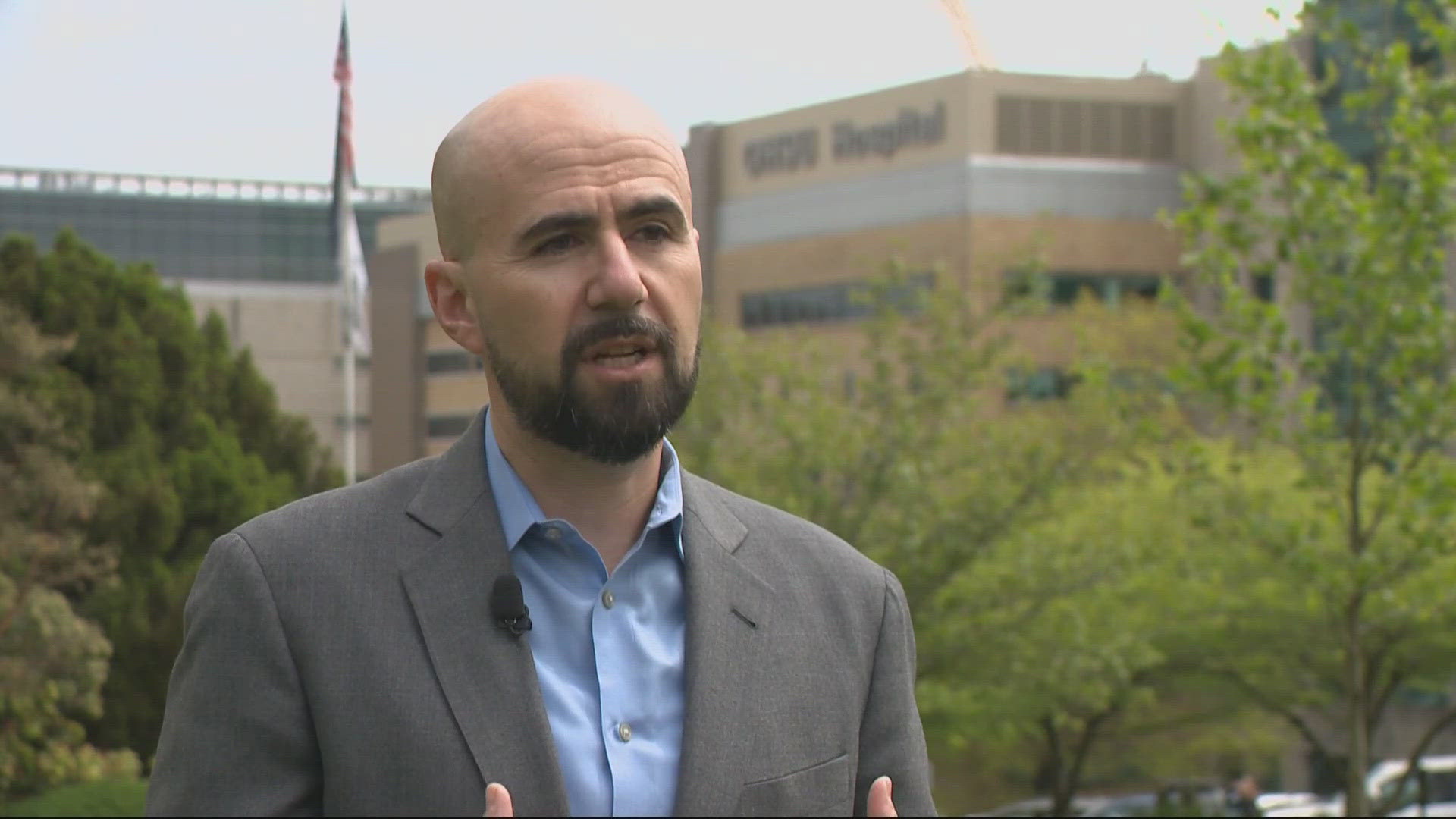A bill pending in the Oregon Senate would ban late-term “sex-selective” abortions, an idea that's elicited criticism from pro-choice groups.
Sponsored by Republican Rep. Kim Thatcher of Keizer, Senate Bill 541 defines such abortions as “performed solely because of the known or suspected sex of an unborn child.” They are “often performed because of personal or cultural preferences for male children over female children, and not because of any clear or imminent danger to the life of the mother,” the bill states.
Thatcher offered no data on how often these abortions are performed.
“Gender-based abortion is a heinous practice that is difficult to quantify,” said Thatcher spokesman Jonathan Lockwood. “Sen. Thatcher wants to ensure gender-based abortions never happen here in Oregon.”
Oregon wouldn’t be the first state to enact such a law, if it passes. Nine states have passed these bans, but enforcement is either temporarily or permanently blocked in two of them, Illinois and Indiana, according to the Guttmacher Institute, a research group that supports abortion rights. Arizona prohibits race-selection abortion.
On Thursday, the Arkansas House of Representatives “overwhelmingly” passed a similar bill that would make performing such an abortion a Class A misdemeanor, according to the Associated Press.
The Oregon legislation, which is pending in the Senate Health Care Committee, imposes no penalty.
It has drawn sharp opposition.
Planned Parenthood Advocates of Oregon believes the is rooted in racial profiling under the guise of preventing gender bias. There is no data to suggest that immigrants from Asia, or anywhere else, are obtaining sex-selective abortions in the U.S., and in fact, Asian-Americans are having more girl babies on average than whites, Laurel Swerdlow, Advocacy Director of Planned Parenthood Advocates of Oregon.
Said Mary Nolan, executive director of Planned Parenthood Advocates of Oregon: “A basic premise of medical care in the United States is a trusting relationship between patient and provider, and the complete privacy of medical information. This legislation is a thinly veiled attempt to limit a woman’s basic medical rights, and her ability to make her own reproductive healthcare decisions.”
“By forcing physicians to interrogate women about their motives for obtaining a medical service — in this case safe, legal abortion — this bill would turn doctors into investigators and women into suspects. Ultimately, decisions about whether to choose adoption, end a pregnancy or raise a child must be left to a woman, her family and her faith, with the counsel of her doctor or healthcare provider.”
The Asian Pacific American Network of Oregon also takes issue with the premise of the bill. Lokyee Au, engagement and development coordinator at APA, had this to say:
“Laws banning sex-selective abortion are enacted based on racist stereotypes about Asians and Pacific Islanders and perpetuate discrimination, not combat it. No one should ever be scrutinized and potentially denied care based on their racial or ethnic background, but this is exactly what these bans encourage. Sex-selective abortion bans not only further undermine the ability for (Asian Pacific Islanders) to have open and honest conversations with their healthcare providers regarding their health, but also increase the likelihood that providers will deny them the care and information they need. This jeopardizes the health of Asians and Pacific Islanders for the sole purpose of pushing a political anti-choice agenda.”
OTHER STATES WITH SEX-SELECTIVE ABORTION BANS
According to abortion rights research group the Guttmacher Institute, seven states ban abortions for reason of sex selection. They are Arizona, Kansas, North Carolina, North Dakota, Oklahoma, Pennsylvania and South Dakota.
Arizona also bans race-selection abortions while North Dakota bans abortions for genetic anomaly.


